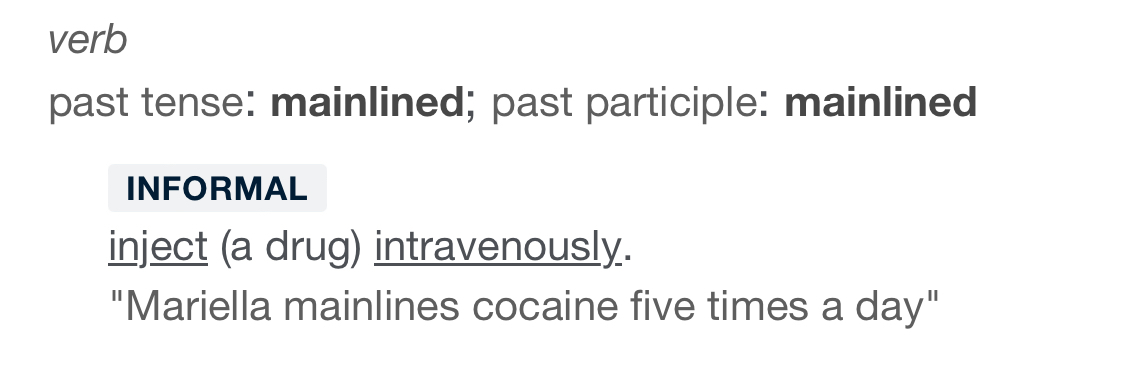What is Fasting and why do so many people seem to be into it?
There are many flavors of fasting, but they can be categorized into two main categories: intermittent fasting (IF) and time restricted eating (TRE). IF is defined as eating once every 24hrs and TRE is characterized by a shortened eating window, usually seen as 8hrs eating and 16hrs fasting.
IF also know as one-meal-a-day (OMAD) and TRE have been farily popular over the last few years. They gained a lot of traction, almost a decade ago, with the hope that fasting mimicking diets could help with age related declines. The overall consensus now is that this type of fasting only imparts lifespan health benefits if you also restrict total calories. However, the hype was strong and most of these dietary methods are still championed today as a way to promote health. But can they actually provide any health benefit? Well, it depends. In the scope of nutrition and health, there's no better alternative than a well balanced diet. That being said, I think these interventions can be excellent tools for targeted goals i.e. weight loss/maintenance.
Alright, this is gonna be real subjective, and your results may vary. Of course the metrics I'm most interested in might not apply to your desires or needs. For me, I prioritize dietary changes that can help me loose weight, primarily fat, quickly while maintaining as much lean mass as possible. Over the last 7 years I've dabbled with various dietary interventions, and here are my anecdotal results.
IF/OMAD
For me, IF has been the most effective tool for rapid weight loss, second only to prolonged fasting. As a rock climber it has been beneficial for me to apply a short stint of IF, 1-2 weeks, periodically when I'm trying to shed excess fat. Usually I resort to this type of eating after a multi month course of unchecked eating, especially when coming back from vacation. After some trial and error I learned that this can increase my chances for climbing injuries, and climbing after a few days of IF left me with really annoying achey fingers, primarily in my proximal and distal interphalangeal joints. Other activities were fine, such as hiking or mild resistance training. My takeaway is that IF is a very powerful tool for rapid weight loss, however, the potential for climbing related injuries makes it a short term success, but a long term failure.
TRE
Eating within time restricted windows is something my body has gravitated towards naturally. Growing up I was surrounded by people who were adamant about the importance of breakfast and I forced myself to eat in the mornings. This helped spark my hunger and after forcing down a small breakfast I would become ravenous 2 hours later. I now let my body choose and in the absence of food I really don't feel hungry until noon. So by default I mostly eat within an 8 hour window. This type of eating works well for me, but I wouldn't say it does anything special. However, this way of eating can help with weight maintenance. If you fall into the pattern of forcing down food every morning because you think you should, and your weight tends to fluctuate easily, this might be a beneficial diet.
Ketogenic Diets
Yes, this one is a wildcard. While this diet might not be recognized as a fasting intervention it does mimic fasts, since it puts your body into a state of ketosis, which is what fasting also does. Also, this is the one dietary intervention that has been consistently effective in helping me lose fat while maintaining, even gaining, muscle mass. I've had a lot of trial and error with this one too, and I've now come to prefer a more carb and protein friendly version that allows me to keep climbing at peak performance. Typically a keto diet is very low carb, modest protein and liberal fat. I prefer higher protein, aiming for 150g on a daily basis, and am not worried about gluconeogenesis, where dietary protein is converted to glucose. On a daily basis my carb intake is between 50g and 100g, depending on my activity levels. I eat a large amount of vegetables, including higher carb sources such as red bell pepper, squash and zucchini. With small amounts of fruit, usually blueberries or dried plums. My fat intake is tied into my protein intake as I prioritize beef over other forms of protein, but will cook vegetables in avocado oil. For me, this hybrid ketogenic diet has worked well. I'm still able to lose weight at a rate comparable to IF (not quite as potent), but am able to maintain athletic performance and keep climbing without injuries. However, this way of eating does come with risks, namely high cholesterol. I've attempted various modes of ketosis, and have played around with other sources of protein and fat, but so far it hasn't made a difference. After prolonged use (>1 month) my LDL rises dramatically. If I were using this diet long term I would utilize pharmaceuticals to get these levels under control, but in the interim I apply this diet briefly and very infrequently. I tend to slip into ketosis somewhat easily, but I'm not sure if this is something my body is naturally predisposed to or if my keto cycles have promoted this adaptation. My current protocol is to apply this diet for about 3 weeks at a time and I'll cycle this about 3-4 times a year depending on needs. Pros: fat loss, strength gains, higher perceived energy levels. Cons: high cholesterol, can't eat pie.
So, those are my thoughts. But what do you think? Is there a dietary intervention that has been life-changing for you? Do you have any concerns with diets? Do tell!
